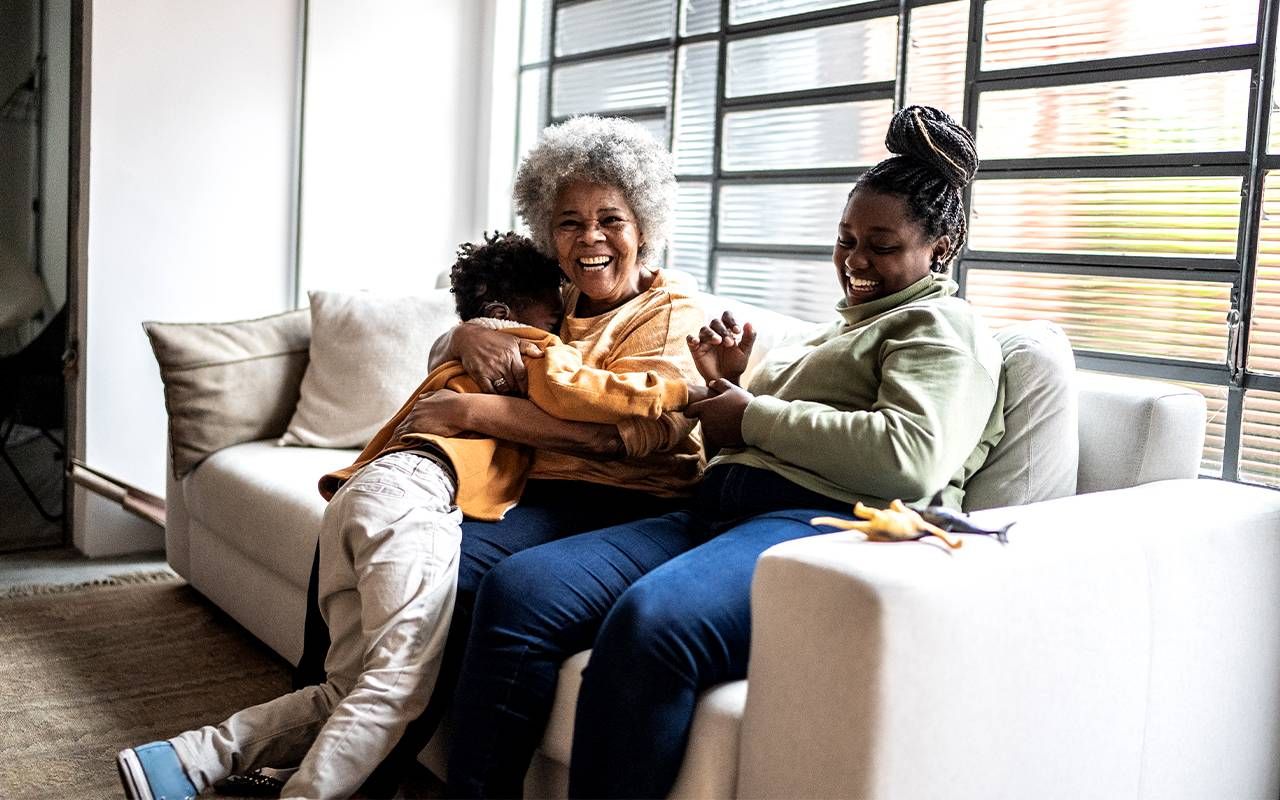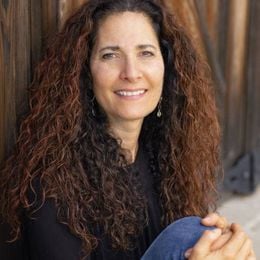But Wait, There's More: A Vision for the Second Half of Life
As with any inevitable change, it's best to recognize that with the loss of vitality in one area of life comes the opportunity for great vitality in another
When I was in my early, anything-is-possible thirties, I left my safe, stable job as a mental health counselor to start, of all things, an art business. I had only recently begun throwing pots, but successful friends on the art festival circuit assured me I, too could make a living.

For the next twenty years, my life was a kaleidoscope of frenetic activity: when I wasn't making art and traveling to shows all over the U.S., I was building a freelance writing business and working on a book. Then I became a certified professional life coach. Then I got a part-time job as a magazine editor for a nonprofit. Then I quit the art to focus on "just" writing the book and freelancing and coaching and creating the magazine.
For years I was in a fast car speeding down Career Street, and suddenly I felt like I was behind the car trying to push it up the road. With the brakes on.
And then COVID-19 came to town, and I was laid off from the magazine job, which really stung, because it was my most reliable source of income. I'll just get another job, I thought. But some things had changed in the time between getting laid off and beginning my search for a new job.
For one thing, I had turned 60. For another, I'd gotten so comfortable working from home, I couldn't see returning to an office — or to a boss. I'll just go back to painting and get in a bunch of galleries, I thought, but my heart wasn't in that, either. For the first time in my life, I felt scattered, unfocused and uncertain about what to do with myself. Where was the woman who leapt out of bed with her engine revving and her head full of projects and ideas? For years I was in a fast car speeding down Career Street, and suddenly I felt like I was behind the car trying to push it up the road. With the brakes on.
It turns out there's a name for what was happening. It's called "maturing."
Goodbye to All That
Sometime after I lost my job, I started reading Arthur C. Brooks's book, "From Strength to Strength: Finding Success, Happiness, and Deep Purpose in the Second Half of Life." Through seven years of research and interviews, Brooks discovered that happiness in later life comes not from striving for greater and greater success and achievement — a strength we enjoy most (and are best at) in our younger years — but in tending to our relationships and in embracing the deep wisdom (a more enduring and rewarding strength) that we've acquired with age.
"I have everything to make me happy and contented, but life has become very wearisome to me."
Brooks is a compassionate and wise guide to what awaits us in the second half of life. Early in the book he tells the story of Charles Darwin, who, by anyone's standards, had a successful career. Thanks to Darwin's years-long, meticulous research aboard the British Navy vessel HMS Beagle, we have the Theory of Evolution, which would forever influence the way we think about our place in the world and how organisms change over time.
Later, at age 50, Darwin published "Origin of the Species," which posited the theory of natural selection, which continues to inform systems of thought today. But after publishing his book, Darwin had no new breakthroughs. And about this he was quite distressed.
"I have not the heart or strength at my age to begin any investigations lasting years, which is the only thing I enjoy," he said. "I have everything to make me happy and contented, but life has become very wearisome to me."
Had Brooks been around in Darwin's day, he could have told him his feelings were normal. That no matter the level of our pursuits and abilities, or what kind of success we have enjoyed (including becoming the Father of Evolution), at a certain point in our lives, our drive begins to wane, and we find the work we've always done (and possibly loved) no longer comes easy nor perhaps even fulfills us.
The fault (if we must call it a fault), lies in the part of our brain called the prefrontal cortex, and no amount of begging and pleading can make it behave any differently. (I know. I've tried, and you probably have, too.)
Swapping One Kind of Intelligence for Another
Broadly speaking, we humans enjoy two kinds of intelligence. Fluid intelligence refers to our ability to think "flexibly," or to "think on our feet." Thinking flexibly allows us to solve complex problems, pick up new concepts quickly, make connections between ideas, come up with novel ideas, theories and inventions, and to weave together information in ways that allow for fresh understanding.
Entrepreneurship, scientific research and analysis, financial planning, and certain medical disciplines are a few examples of fields whose skills and abilities rely on fluid intelligence.
Unfortunately, the prefrontal cortex, where our fluid intelligence is housed, is one of the first parts of the brain to decline.
Unfortunately, the prefrontal cortex, where our fluid intelligence is housed, is one of the first parts of the brain to decline. And — you might want to brace yourself here — not when we are 70 or 80. According to research, it begins to deteriorate as early as our late 30s.
Hello to All This!
It's hard to hear that we begin our cognitive decline as early as our late, anything-is-possible thirties. But Brooks has some excellent news for those of us who find ourselves less proficient than we once were in our chosen fields, or with waning enthusiasm for that which used to fire us up.
It is this: The second half of our life can be even richer and more rewarding than the first half. The key lies in moving from one kind of strength to another. Enter crystalized intelligence.
Crystallized intelligence refers to the sum total of our learning and experiences, the information and facts we've gleaned and stored over the years until it is solidly "in our bones." Examples include our understanding of language and social milieu, the accumulation of general information including formulas, facts, data, principles and long-held ideas, and memory for events, theories and history.
Unlike fluid intelligence, crystalized intelligence builds upon itself throughout our life, and doesn't begin to decline until old age.
By far the greatest strength of this stage of life, says Brooks, is the wisdom we have accumulated over all of our years of living.
Why is the distinction important? Because as we experience a decline in our fluid abilities, it's important to pivot to activities, undertakings and outlets that make use of our crystalized abilities. By far the greatest strength of this stage of life, says Brooks, is the wisdom we have accumulated over all of our years of living.
Finding a way to share our accumulated wisdom, though service such as volunteer work, coaching, mentoring, serving on advisory boards and/or various kinds of teaching, allows us to embrace our crystalized knowledge and abilities while enriching the lives of others.
What's In it For Me?
It can be hard to let go of the youthful version of ourselves. We miss the rewards and accolades that being a risk-taking businesswoman or savvy entrepreneur or fearless tycoon brought us; without bravado, without recognition, who are we, and what meaning does our life have? Plenty, says Brooks, but we must let go of the illusion that achievements and accolades are the only things that can sustain us. The truth is, success and the praise we receive for it is ephemeral: it begins to dissipate almost as soon as we get it. This is in part what keeps us striving.
So what is a second-halfer to do when we realize we're not as driven, or as passionate or as quick-witted as we once were? As with any inevitable change, it's best to recognize that with the loss of vitality in one area of life comes the opportunity for great vitality in another.
What we lose in intellectual agility, we gain in intellectual acuity: we discover that the path to happiness in later life lies not in continuing to rack up successes, or in attempting to live off the emotional spoils of our legacy, but in sharing the profound hard-earned gifts of our stored wisdom, and in forging richer, more meaningful connections with others.
This leap — from one kind of strength to another — is a leap we are privileged to make, if we live long enough, and are courageous enough to embrace the other side.

Read More

